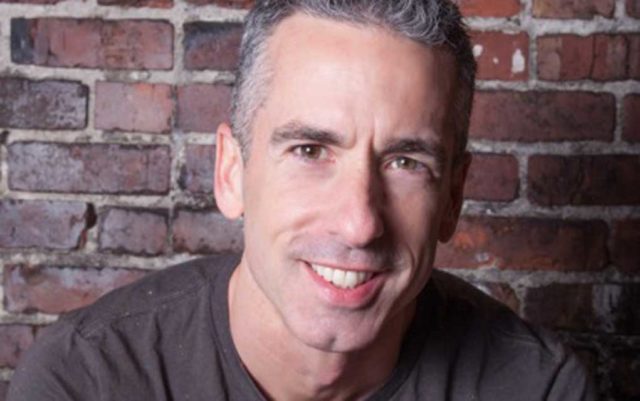
Dear Dan: I am a 34-year-old straight woman. I’m monogamous and have an avoidant attachment style. I’ve been seeing a guy I really like. He’s just my type, the kind of person I’ve been looking for my whole life. Thing is, he’s in an open relationship with someone he’s been with for most of his adult life. He was sneaky — he didn’t reveal he was in an open relationship until the second date, but by then I was infatuated and felt like I wasn’t in control of my actions. So what I’ve learned is that poly couples often seek out others to create NRE or “new relationship energy,” which may help save their relationship in the long run. I was deeply hurt to learn about NRE. What about the people who are dragged into a situation by some charmer in an attempt to breathe new life into a stale relationship? I feel like no one cares about the people on the side, the ones who might be perceived to be cheating with someone’s partner, as some sort of competitor, a hussy. How can I reconcile the fact that I’ve fallen for someone who sees me as a tool to be discarded once the excitement wears off? I know we all have a choice, but we also know what it’s like to be infatuated by someone who seems perfect. I feel like such a loser.
— Sobbing Here And Making Errors
Dear SHAME: “One of life’s hardest lessons is this: Two people can be absolutely crazy in love with each other and still not be good partners,” Franklin Veaux says, coauthor of More Than Two: A Practical Guide to Ethical Polyamory (morethantwo.com). “If you’re monogamous and you meet someone you’re completely smitten with who isn’t, the best thing to do is acknowledge that you’re incompatible and go your separate ways. It hurts and it sucks, but there it is.”
This perfect, sneaky guy who makes you feel like a loser and a hussy? He told you he was in an open relationship on your second date. You knew he wasn’t “your type” or “perfect” for you the second time you laid eyes on him, SHAME, and you needed to go your separate ways at that point. And I’m not buying your excuse (“I was too infatuated!”). What if he had revealed that he was a recreational bed wetter? Or a serial killer? Or Jeffrey Lord? Or all of the above? Surely you would’ve dumped him then.
Veaux advocates ethical polyamory — it’s right there in the title of his book — and he thinks this guy did you wrong by not disclosing his partner’s existence right away. “Making a nonmonogamous relationship work requires a commitment to communication, honesty, and transparency,” said Veaux. “Concealing the fact that you’re in a relationship is a big violation of all three, and no good will come of it.”
I have a slightly different take. Straight women in open relationships have an easier time finding men willing to fuck and/or date them; their straight male counterparts have a much more difficult time. Stigma and double standards are at work here — she’s sexually adventurous; he’s a cheating bastard — and waiting to disclose the fact that you’re poly (or kinky or HIV-positive or a cammer) is a reaction to/work-around for that. It’s also a violation of poly best practices, like Veaux says, but the stigma is a violation, too. Waiting to disclose your partner, kink, HIV status, etc., can prompt the other person to weigh their assumptions and prejudices about poly/kinky/poz people against the living, breathing person they’ve come to know. Still, disclosure needs to come early — within a date or two, certainly before anyone gets fucked — so the other person can bail if poly/kinky/poz is a deal breaker.
As for that new relationship energy stuff…
“There are, in truth, polyamorous people who are NRE junkies,” Veaux says. “Men and women who chase new relationships in pursuit of that emotional fix. They’re not very common, but they do exist, and alas they tend to leave a lot of destruction in their wake.”
But your assumptions about how NRE works are wrong, SHAME. Seeing your partner in the throes of NRE doesn’t bring the primary couple closer together; it often places a strain on the relationship. Opening up a relationship can certainly save it (if openness is a better fit for both partners), but NRE isn’t a log the primary couple tosses on the emotional/erotic fire. It’s something a poly person experiences with a new partner, not something a poly person enjoys with an established one.
And there are lots of examples of long-term poly relationships out there — established triads, quads, quints — so your assumption about being discarded once NRE wears off is also off, SHAME. There are no guarantees, however. If this guy were single and looking for a monogamous relationship, you could nevertheless discover you’re not right for each other and wind up being discarded or doing the discarding yourself.
I’m going to give the final word to our guest expert…
“Having an avoidant attachment style complicates things, because one of the things that can go along with avoidant attachment is idealizing partners who are inaccessible or unavailable,” Veaux says. “That can make it harder to let go. But if you’re radically incompatible with the person you love, letting go is likely your only healthy choice. Good luck!”
Send questions to [email protected], follow @fakedansavage on Twitter and visit ITMFA.org.













